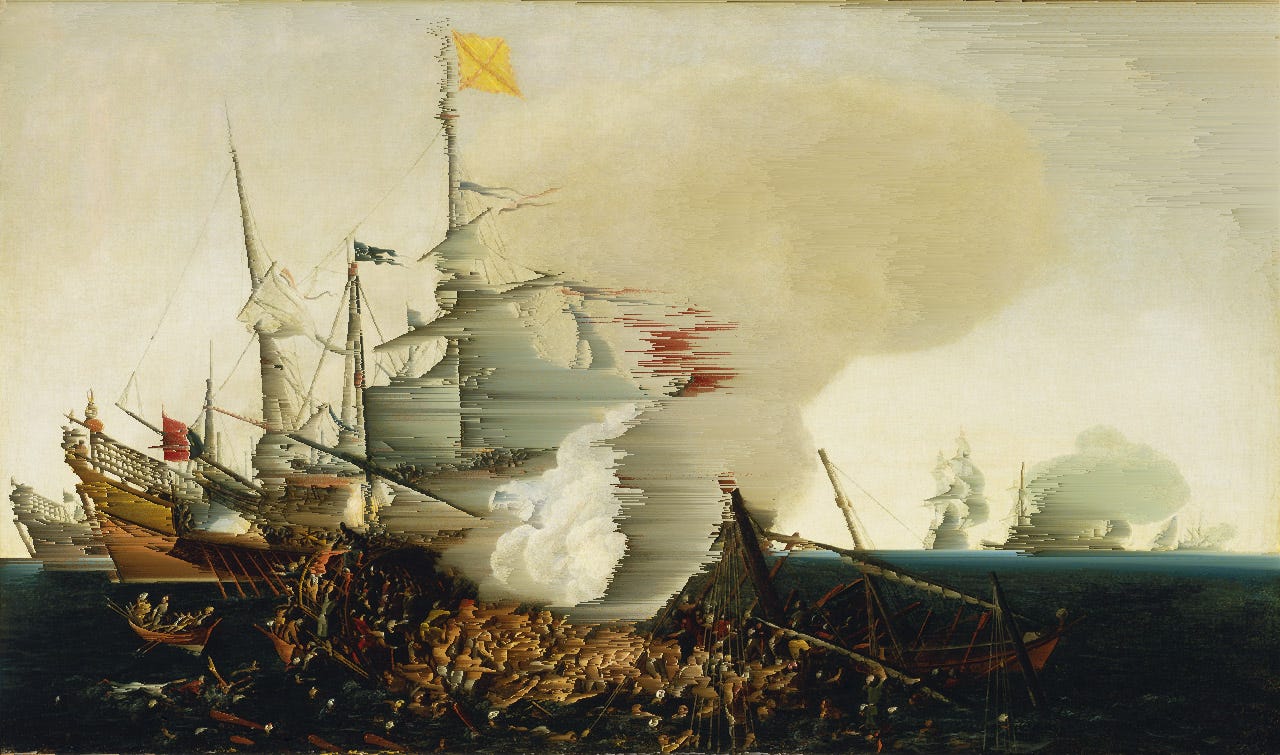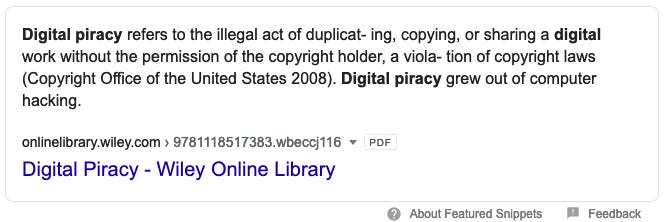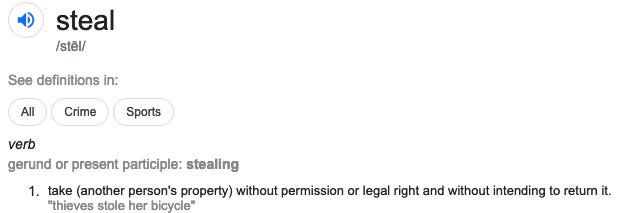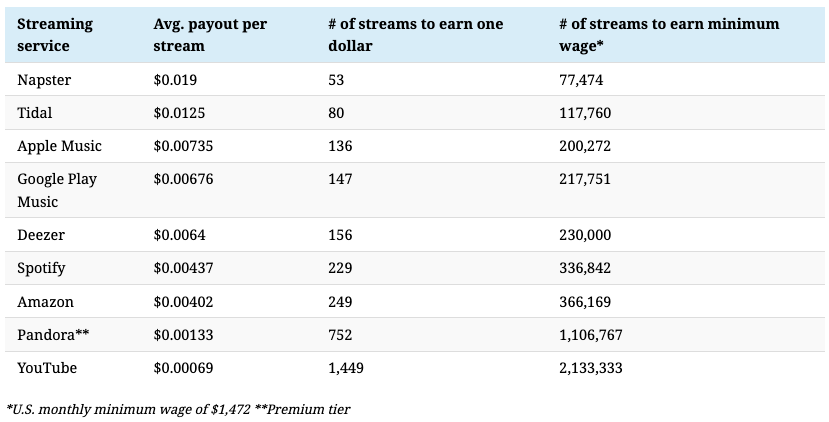Everyone who knows me knows that I hate sea pirates. Their aesthetic is garish; their dialect is annoying; and – fuck it, can someone please Genghis Khan these fools already. A couple years ago I even made a villain of myself at a pirate-themed party by critiquing Hook (1991) for being a terrible movie across the entire course of it’s runtime. I still think if people abandoned their rose-tinted glasses they’d agree with me on that front.

This irrational personal umbrage against pirates seems to be a trait I share with an increasingly large number of other people on the internet – although, where I’m a staunch opponent of swashbuckling seafarers, these folks rail against a different breed: digital pirates.
For those somehow generally unaware of what digital piracy is, here’s the Google featured snippet definition:

Digital piracy (henceforth, just “piracy”) isn’t new; in fact it’s been out of fashion for the better part of a decade, but with the increasingly balkanized state of streaming services, piracy looks to make a comeback as people are less willing, or able, to pay for an ever-growing number of monthly subscriptions. Not to mention the ongoing pandemic and subsequent economic downturn which has many, Americans in-particular, stuck at home, endlessly consuming media without a steady source of income. As movies and TV are "vaulted" away from the public both digitally and physically, or otherwise made unavailable, consumers will be forced to find other paths to access them. Similarly, music streaming has made what content is available via those platforms fickle, as listeners no longer control their music files (or, in many cases, no longer own physical copies).
To me, these social and material conditions spell the inevitable return of piracy to the cultural zeitgeist. With it though, comes a contingent of naysayers – bemoaning the “money stolen from artists’ pockets” (direct quote from a Facebook comment section). While, on its face, this seems like a fairly easy ideological stance to defend – when we examine piracy on the internet more critically, it becomes a lot clearer that it’s riddled with hypotheticals and false equivalencies.
The Faulty Argument
The biggest fault in anti-piracy arguments is that they’re almost always predicated on the (non-)existence of a hypothetical transaction. They assume that the “thief” would have paid for the media in question were they unable to pirate it. This assumption is patently untrue. Aside from the fact that not all audio or video media is available via digital/streaming services (see: region locking, “vintage” titles/content deserts, undistributed or independent artists, etc.) – when 78% of Americans are living paycheck-to-paycheck (this was in January 2020, before 47 million Americans filed new unemployment claims because of the pandemic) even $10 a month for Spotify and $13 for Netflix’s “standard” plan is more money than some can afford to spend. $23 for many families is almost two weeks of meals. While there’s no data that I’m aware of linking poverty to piracy within the U.S. economy, globally this link is well documented: “Media Piracy's core thesis is simple: people in the poor world don't pay for software, games, music and movies because these goods cost too much.”
In short, the idea that pirates are unwilling to pay for media is surely not the cause of piracy – rather, people pirate because they are unable to pay for media.
Another issue with this argument that piracy is stealing – is the word “stealing” itself. Let’s take another look at a Google infobox:

While this definition of “stealing” isn’t at all comprehensive, it does highlight the main issue with the use of the word to describe the act of digital piracy. Theft requires that the thing being stolen is taken from its owner – digital piracy does not take anything from its owner, rather it copies it. Digital files are an inexhaustible resource, able to be copied an infinite number of times, and at no point during this process does anyone lose their “property”, people only stand to gain. This view of digital files as property reveals another particularly class-oriented worldview, in which the access to art/information is the actual good being paid for, not the thing itself; the ability to say (or feel) “I have this, you do not”.
This particular argument is strikingly similar to that made by the upper classes in their historic (and continuing) fight against public libraries. If we understand non-print media to be equally as culturally important and relevant as print media, why do we not see access to it as equally important? In my view, streaming services are the subscription libraries of the 21st century.
A further assumption made by these anti-piracy advocates is that artists make significant income from streaming services, the would-be replacement for piracy. (Disclaimer: this argument is really only utilized in the context of the music industry, so that’s what I’m going to talk about here.) While artists do make some money from streaming, the amount is usually insignificant. There are essentially two classes of artists on streaming services – those who make money from them, and those who do not. This is due to the pro-rata system of artist payouts, where artists are paid based on the percentage of streams they receive compared to the percentage of streams at large; essentially funneling the majority of streaming money set aside for artists into the pockets of a few big artists.
The other, easier to understand, reason artists make no money off of streaming is the amount they are paid per-stream (also, remember that non-solo artists would have to receive X times these amounts of streams to make minimum wage, where X = number of members):

These payment figures are also taken from before revenue is split between distributors, labels, rights-holders, etc. leaving artists with even less of a share in the payout. Even album or song sales, which are increasingly rare, are severely docked by streaming services and label/distributor types. On iTunes, 30% of every sale goes to Apple – and if middlemen are involved, the average percentage of every sale that goes to an artist is just 23%.
What makes these statistics all the more heinous, is that these services would not exist were it not for the art contained on them. Meanwhile, executive profits soar. For example, the CEO of Spotify, Daniel Ek’s, net worth is estimated at 4.3 billion dollars as of writing this. What’s even more predatory and unusual about streaming services is that they don’t just rip-off the artists they rely on, but also their investors – as these services rarely, if ever, turn an actual profit.
With this in mind, I’d make the argument that music piracy is actually more ethical than streaming. When artists make a negligible amount of money from streams in the first place, and streaming only enriches the CEO of whatever-streaming-service-you-use’s coffers – is it not more ethical to circumvent this system entirely? To deny the Eks of the world your $10 a month and spend that money directly supporting an artist you care about?
Streaming aside, we also need to inspect the culture of the internet and it’s trajectory. Since the “dot-com bubble” of the 90’s we’ve seen the increased corporatization of new media. Everything has been monetized. Venture capital and private equity have edged out, kept at the fringes, or bought up most independent publications and projects. These movements are completely against the early culture of the internet; which, though by no means perfect, was one which in almost all accounts valued collective advancement over personal gain – in fact, many of today’s tech CEOs are individuals who exploited that philosophy of openness for themselves. This open source ideology is the backbone of internet technology and is becoming increasingly rare as companies hand-wring over their intellectual property. This same tendency is being exhibited in the media industry now, and though, at a glance, ‘open-source’ may not seem to be the underpinning of media culture, the majority of independent media is organized through mutual aid and trust. Beyond that, existing ideas and concepts of media istelf are constantly built upon and changing, evolving together. While there needs to be a reckoning about proper conceptual attribution in contemporary music, and art in general, I’m hopeful that artists will be receptive to such a conversation – and that culture can continue to grow together in a more positive way.
Underlying culture, though, is always the need for access to that which pre-exists. With the imminent death of community radio, the previous arbiter of free access to new and groundbreaking music, and the rest of the new media landscape looking increasingly consolidated and corporate (just see the changes in YouTube’s top content, a terrible microcosm [macrocosm?] of this trend), there is a desperate need for artists to make their content accessible independent of predatory platforms, or risk being edged out of culture entirely. Piracy is just one way for consumers to circumvent these trends, and would ultimately be actually unnecessary were this paradigm shift to take place.
The Future
The whole situation is pretty bleak, but the brighter future we so desperately need is peeking out from between the clouds.
There has recently been a litany of platforms and services offering alternatives to content creators and artists to work independently of corporate investment: Bandcamp for musicians, Patreon for visual artists and podcasters, Substack (hi!) for writers and journalists, etc. etc. While the jury’s still out on if this change will be lasting, what the societal consequences of it will be, and if these services too will be corrupted by late-capitalist greed – but, for now, they’re the finger in the dike of culture being totally flooded by corporate exploitation.
Ultimately, the only way to make art a sustainable career for everyone who wishes to pursue it, would be to subsidize it: to offer accessible grants to musicians and writers and the like – but until then, these direct-to-content platforms are the best alternative for creators, and for consumers who have the means to pay for them.
For those consumers without means, piracy is still the most ethical and sustainable option.
Here’s a music recommendation for this very fucked up week. Consider subscribing.



